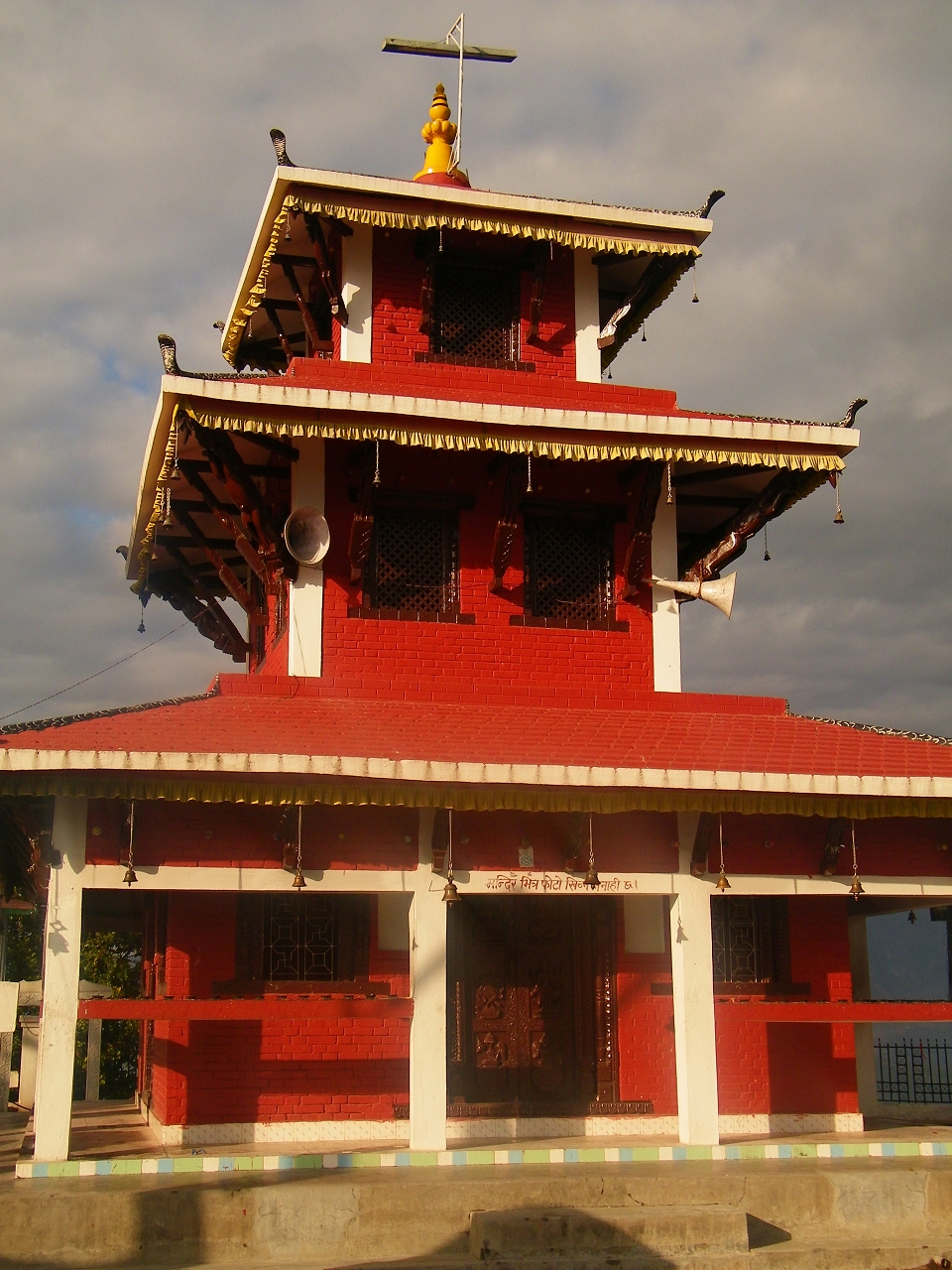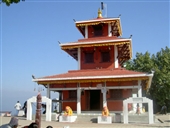
Maula Kalika Temple is a renowned Hindu temple located in Gaindakot, dedicated to the goddess Kalika. Situated atop a mountain at approximately 561 meters above sea level, it offers a serene and breathtaking view of the surrounding landscape.
The temple is believed to have been established around the 16th century by the Sen dynasty king of Palpa as a symbolic offering site (Mouula) to Goddess Kali. Until the 1970s, priests from the Magar community served at the temple. Local tribal people had been worshipping the site for centuries before it gained widespread popularity in recent times.
Over time, the traditional Magar priests were replaced by Brahmin priests, unlike in other goddess temples like Manakamana, where Magar priests are still allowed to perform rituals. The practice of animal sacrifice at the temple has also been discontinued, following growing opposition from the community.
Historically, Gaindakot was part of the Palpa Kingdom until the time of Bahadur Shah. The kingdom provided logistical support during the unification campaign of Bahadur Shah in the western regions, including Kumau and Garhwal. The Sen dynasty of Palpa was led by Magar kings, as detailed in the handwritten treatise "Naradsmriti" and other historical records from Sikkim. After Bahadur Shah's death, the Palpa Kingdom was unified with Nepal under the rule of King Rana Bahadur Shah and Prime Minister Bhimsen Thapa.
Today, the temple attracts visitors from across Nepal and neighboring countries. Many people visit the site to enjoy the cool breeze, panoramic views, tranquility, and the adventure of climbing the 2,000-meter-long winding staircase that leads to the temple. The path to the temple is also popular for hiking and running. An annual running event is held on the Saptami (three days before Dashain), where both professional and amateur runners participate.
Recently, a cable car was installed, making it easier for elderly and disabled individuals to visit the temple. This addition has boosted tourism in the area.
While the rise in tourism and infrastructural improvements are positive, it is essential to preserve the temple’s original religious values, traditions, and spirit. The ban on animal sacrifice, though seemingly positive, has sparked some debate. Critics of animal sacrifice, who themselves consume meat, appear contradictory in their views. It is believed that performing animal sacrifice in a respectful manner—ensuring the animal's well-being and psychological readiness—can free the animal from the cycle of life and death, granting it a peaceful passage to heaven.

